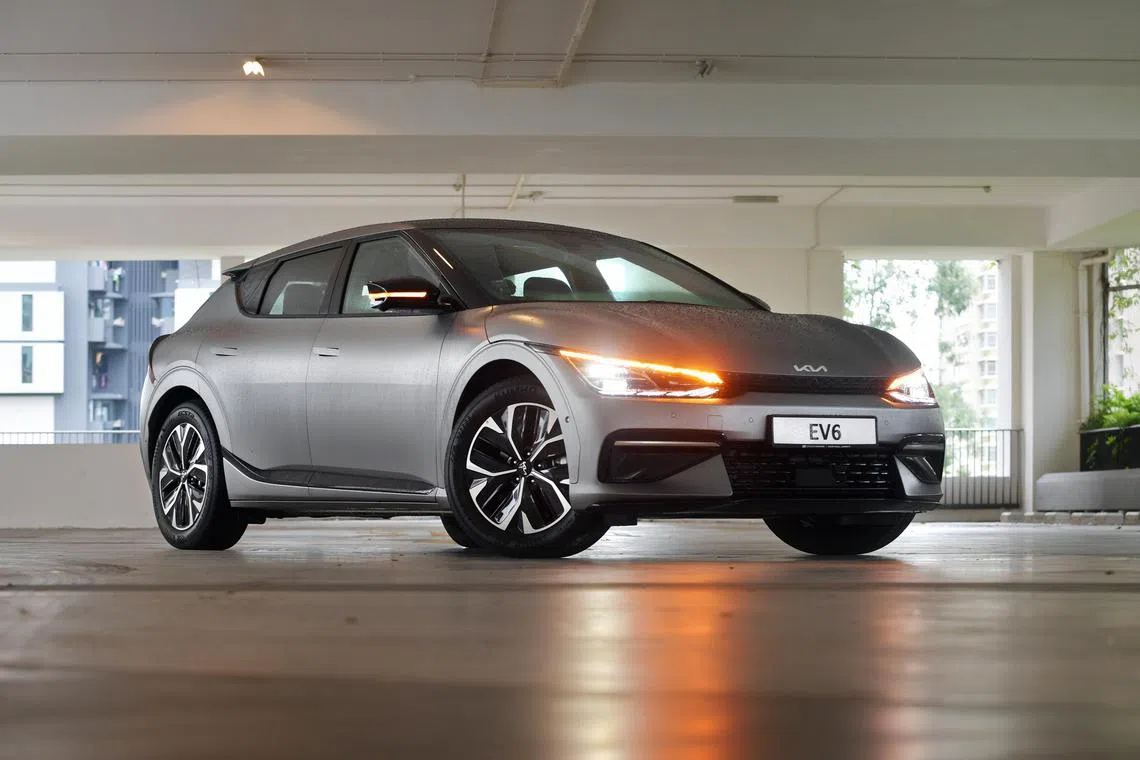Torque Shop: Impact of temperature on EV range
Sign up now: Get ST's newsletters delivered to your inbox

Electric vehicles such as the Kia EV6 operate best when temperatures are between 25 and 30 deg C.
PHOTO: ST FILE
Follow topic:
How much impact does temperature have on the range of a hybrid or full electric vehicle (EV)?
Typically, EVs and hybrids use either lithium-ion or nickel-metal hydride rechargeable batteries. The internal and external temperatures of such high-voltage batteries are critical factors that affect the average distance or the range the vehicle can cover.
Ambient temperature does cause a rise in the battery’s temperature. Fortunately, Singapore’s range of temperatures is not too far off the ideal EV operating conditions of between 25 and 30 deg C. These batteries do not like working when temperatures fall below 20 deg C or rise above 40 deg C.
Having said that, most driving is done during the day, when temperatures here often exceed 30 deg C. This means the EV’s air-conditioning system has to work harder and that saps its range too.
Internally, the chemical reaction that takes place in producing electricity also results in heat being released, causing a rise in temperature. A sophisticated battery management system monitors and controls, among other parameters, the battery pack’s temperature using its refrigerated cooling system.
Releasing more electrical energy, such as when accelerating hard or driving at speed, produces more heat in the battery pack. Since the high-voltage battery is the only source of on-board energy, the cooling system is also powered by the same lithium-ion or nickel-metal hydride pack. Clearly, a more gentle driving style puts less load on the battery and consequently increases its available range.

